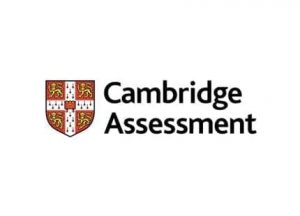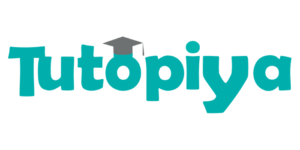- When it comes to choosing your Cambridge IGCSE subjects. Use our Quick Cambridge IGCSE Subjects Guide to find out what each IGCSE subject has to offer.
QUICK SUBJECT GUIDE FOR CAMBRIDGE IGCSE EXAMS

Tutopiya brings you a Quick Cambridge IGCSE Subjects Guide so that students and parents can make informed choices after they read, understand and confidently choose the subjects they want to take for their Cambridge IGCSE Examinations.
Ever wondered what each subject for the Cambridge IGCSE is like? Are they going to be fun to study? What do they have to offer? Or What topics will be taught within each subject?
Two years is a long time to prepare for Cambridge IGCSE Exams, which is why you would rather spend it studying and learning subjects that interest, challenge and inspire you for your further aspirations

EXPLORE THE ARTICLE
- WHY DO YOU NEED A IGCSE SUBJECT GUIDE
- SUBJECTS and THEIR DESCRIPTION
- WHY TUTOPIYA IS BEST FOR IGCSE SUBJECTS
- DOES SUBJECT CHOICE AFFECT YOUR CAMBRIDGE GCE A LEVEL, IB DP, OR OTHER EXAMS

WHY DO STUDENTS AND PARENTS NEED A QUICK CAMBRIDGE IGCSE SUBJECT GUIDE?
This guide gives you information about all the main IGCSE subjects offered at Tutopiya, whether core or optional.
In particular, you should read the course description for the subjects, and think about your choices by discussing with your parents, teachers, tutors, and the senior pupils at your school.
Here are some aspects you might want to think about:
- How interested am I in this subject?
- If I do not study this subject will I be able to take it up in Cambridge AS and A-level / IB DP?
- If I do not pick this subject am I damaging my chances of following a particular degree or career path?
- How do my subjects fit together? Do I have a balance which reflects my strengths and interests?
So, before we begin discussing the subjects in Cambridge International IGCSE
IGCSE SUBJECTS AND DESCRIPTION GUIDE

-
IGCSE Mathematics (0580)
The syllabus aims to build students’ confidence by helping them cultivate competence and fluency with mathematical concepts, methods and skills.
As a result, it instils an understanding of numbers, patterns and relationships.
The course is divided into different levels to show effective differentiation for learners.
The Core content is intended for candidates targeting grades G–C, and the Extended content is intended for learners targeting grades D–A*.
All of the Core content is in the Extended content.
The subject content is organised by topic: Number, Algebra, Shape and Space, and Probability and Statistics. The chapters within each topic are given below:
- Number: Number
- Algebra: Algebra, Graphs, and Coordinate Geometry
- Shape & Space: Geometry, Mensuration, Trigonometry, Vectors and Transformation
- Probability & Statistics: Probability and Statistics
Students have to sit for TWO Papers mentioned below (with their relevant grade percentages in the brackets)
Practical Tip: Tutopiya offers a wide range of tips and tricks to study for the IGCSE Mathematics course
Calculators are allowed throughout the assessment.
Hence, students must know when and how to use their calculator, how to check their answers and how to apply to the round figure appropriately when solving a problem.
Learners should be able to show their working and be able to communicate mathematically.
· IGCSE International Mathematics (0607)
Cambridge IGCSE International Mathematics supports students in building competency, confidence and fluency in their use of techniques and mathematical understanding.
Therefore, it provides a blend of theoretical understanding with the application of techniques and approaches.
The curriculum teaches skills such as investigation and modelling, which as a result gives learners a solid foundation for further study.
From Cambridge IGCSE International Mathematics learners can progress to Cambridge IGCSE Additional Mathematics or straight to Cambridge International AS & A Level Mathematics, or other qualifications at that level.
Candidates may follow either the Core curriculum or the Extended curriculum.
Candidates aiming for grades A* to C should follow the Extended curriculum.
All candidates will study the following topics:
- Number
- Algebra
- Functions
- Coordinate geometry
- Geometry
- Vectors and transformations
- Mensuration
- Trigonometry
- Sets
- Probability
- Statistics
Candidates should be able to do the following using a graphic display calculator
- sketch a graph
- produce a table of values for a function
- to find zeros and local maxima or minima of a function
- to seek the intersection point of two graphs
- find mean, median, quartiles
- find the linear regression equation.
Other existing in-built applications should not be used and will gain no credit.
Calculators with symbolic algebraic logic are not permitted.
Any other applications and programs from external sources are not permitted.
Candidates should also be able to:
- select the mathematics and information to model a situation
- select the appropriate tools, including ICT, to use in a situation
- apply appropriate methods and techniques to analyze a situation
- interpret and communicate the results of the analysis.
Candidates should take ALL THREE PAPERS (With their respective percentage of marks in the brackets)
Candidates who have studied the Core syllabus content should be entered for Paper 1 (40 marks), Paper 3 (96 marks) and Paper 5 (36 marks) = TOTAL = 172 marks
These candidates are eligible for grades C to G.
Candidates who have studied the Extended syllabus content should be entered for Paper 2 (40 marks), Paper 4 (120 marks) and Paper 6 (60 marks) = TOTAL = 220 marks
These candidates are eligible for grades A* to E.
Candidates should have a graphic display calculator for Papers 3, 4, 5 and 6
· IGCSE Additional Mathematics (0606)
Cambridge IGCSE Additional Mathematics helps students in building the ability, confidence and fluency in their use of techniques and mathematical understanding.
Students will develop their reasoning, problem-solving and analytical skills in a variety of frameworks.
It provides a strong foundation of mathematical knowledge both for candidates studying mathematics at a higher level.
It is designed to stretch the ablest candidates and provides a smooth transition to Cambridge AS & A Level Mathematics.
All candidates take Two Papers. Paper 1 (50%) and Paper 2(50%)
Candidates are eligible for grades A* to E. Grades F and G will not be available.
Candidates who do not achieve the minimum mark for grade E will be unclassified.
These are the topics that all the students have to study:
- Functions
- Quadratic functions
- Equations, inequalities and graphs
- Indices and surds
- Factors of polynomials
- Simultaneous equations
- Logarithmic and exponential functions
- Straight line graphs
- Circular measure
- Trigonometry
- Permutations and combinations
- Series
- Vectors in two dimensions
- Differentiation and integration

-
IGCSE English Language – First Language (0500)
- Develop the skill to communicate clearly, accurately and excellently when speaking and writing
- Use a wide range of vocabulary, and the correct grammar, spelling and punctuation
- Develop a personal style and mindfulness of the audience being addressed.
Students are also encouraged to read widely, both for their own enjoyment and to further their knowledge of the ways in which English can be used.
Cambridge IGCSE First Language English also aims to develop general analysis and communication skills such as inference, ability to order facts and present opinions effectively.
You can think of your Cambridge IGCSE First Language English course as having three main areas of skills and understanding:
- Reading
- Writing
- Speaking and listening.
These skills are called assessment objectives since these are the skills examiners will be looking out for when assessing the student
Students will take either two or three components in total.
It is important to find out from your teacher which components you will be taking, and when you will be taking them.
At the end of your course, your reading and writing skills will be assessed for your final grade for Cambridge IGCSE First Language English.
There are two different options for how this can happen.
OPTION 1 – Student will take TWO EXAMS.
Paper 1 (50%) (READING) + PAPER 2 (50%) (DIRECTED WRITING & COMPOSITION)
OR
OPTION 2 – Students will take ONE EXAM and Submit a COURSE WORK PORTFOLIO at the end of the 2 year course period.
Paper 1 (50%) (READING) + Component 3 (50%) (COURSEWORK PORTFOLIO)
Candidates can also take Component 4 (SPEAKING) as an optional component.
- Student MUST take Paper 1
- Student can take either Paper 2 or Component 3
- Component 4 does not contribute to your overall result and is marked as a separate examination, for which you will be given a separate result.
Click here to Get FREE IGCSE ENGLISH WRITING AND EXAM PAPER RESOURCES!

· IGCSE English Literature- In English (0475)
The syllabus trains students to read, interpret and analyze texts through the study of literature in English.
Students develop an understanding of literal meaning, relevant contexts and of the deeper themes or attitudes that may be expressed.
Through their studies and interaction with the texts involved, they learn to recognize and appreciate the ways in which writers use English to achieve a range of effects.
As a result, this will help them to present a well-versed, individual response to the material they have studied.
The syllabus also encourages the exploration of wider and universal issues, promoting students’ better understanding of themselves and of the world around them.
All candidates take Paper 1(50%) Poetry and Prose, AND EITHER Paper 2 (50%) Drama, OR Paper 3 (25%) Drama (Open Text) and Paper 4(25%) Unseen, OR Paper 3 Drama (Open Text) and Component 5 (25%) Coursework.
For some students, writing a literary essay is a challenge but with our quick IGCSE English Literature Essay Writing Guide, you can say bye to all the essay writing worries!

· IGCSE Chemistry (0620)
Learners gain an understanding of the basic principles of Chemistry through a mix of theoretical and practical studies.
They also develop an understanding of the scientific skills essential for further study at Cambridge International A Level, skills which are useful in everyday life.
As they progress, learners understand how science is studied and practised, and become aware that the results of scientific research can have both good and bad effects on individuals, communities and the environment.
Students will study the following topics:
- The particulate nature of matter
- Experimental techniques
- Atoms, elements and compounds
- Stoichiometry
- Electricity and chemistry
- Chemical energetics
- Chemical reactions
- Acids, bases and salts
- The Periodic Table
- Metals
- Air and water
- Sulfur
- Carbonates
- Organic chemistry
All candidates take THREE Papers: with their respective grade percentages mentioned in the brackets.
Candidates who have studied the Core subject content, or who are expected to achieve a grade D or below should be entered for Paper 1 (30%), Paper 3 (50%) and either Paper 5 (20%) or Paper 6 (20%).
These candidates will be eligible for grades C to G.
Candidates who have studied the Extended subject content (Core and Supplement), and who are expected to achieve a grade C or above should be entered for Paper 2 (30%), Paper 4 (50%) and either Paper 5(20%) or Paper 6 (20%).
These candidates will be eligible for grades A* to G.

· IGCSE Biology (0610)
Students gain an understanding of the basic principles of biology and human biology through a mix of theoretical and practical studies.
They also develop an understanding of the scientific skills, essential for further study at Cambridge International A Level, which are useful in everyday life.
These are the topics that will be covered in the IGCSE Biology course:
- Characteristics and classification of living organisms
- The organisation of the organism
- Movement in and out of cells
- Biological molecules
- Enzymes
- Plant nutrition
- Human nutrition
- Transport in plants
- Transport in animals
- Diseases and immunity
- Gas exchange in humans
- Respiration
- Excretion in humans
- Coordination & response
- Drugs
- Reproduction
- Inheritance
- Variation and selection
- Organisms and their environment
- Biotechnology & genetic engineering
- Human influences on ecosystems
All candidates take THREE Papers (with their respective grade percentages given within the brackets)
Candidates who have studied the Core subject content, or who are expected to achieve a grade D or below, should be entered for Paper 1 (30%), Paper 3 (50%) and either Paper 5 (20%) or Paper 6 (20%).
These candidates will be eligible for grades C to G.
Candidates who have studied the Extended subject content (Core and Supplement), and who are expected to achieve a grade C or above, should be entered for Paper 2 (30%), Paper 4 (50%) and either Paper 5 (20%) or Paper 6 (20%).
These candidates will be eligible for grades A* to G.
· IGCSE Physics (0625)
The Cambridge IGCSE Physics syllabus helps students to understand the technological world in which they live, and take an informed interest in science, scientific and technological developments.
They will learn about the basic principles of Physics through a mix of theoretical and practical studies.
This course will also help students develop an understanding of the scientific skills essential for further study at Cambridge International A Level.
As they advance, students gain an understanding of how science is studied, practised and implemented.
This allows the students to become aware that the results of scientific research can have both good and bad effects on individuals, communities and the environment.
The topics covered In the IGCSE Physics course are as follows:
- General physics
- Thermal physics
- Properties of waves, including light and sound
- Electricity and magnetism
- Atomic physics
All candidates take THREE papers: (each paper carries a percentage of the whole grade mentioned within brackets)
Candidates who have studied the Core subject content, or who are expected to achieve a grade D or below, should be entered for Paper 1 (30%), Paper 3 (50%) and either Paper 5 (20%) or Paper 6 (20%). These candidates will be eligible for grades C to G.
Candidates who have studied the Extended subject content (Core and Supplement), and who are expected to achieve a grade C or above, should be entered for Paper 2 (30%), Paper 4 (50%) and either Paper 5 (20%) or Paper 6 (20%). These candidates will be eligible for grades A* to G.
· IGCSE Chinese/ Mandarin – Foreign Language (0547)
This syllabus is designed for learners who are learning Mandarin Chinese as a foreign language.
The aim is to develop an ability to use the language effectively for purposes of practical communication.
The course is based on the linked language skills of listening, reading, speaking and writing, and these are built on a student’s progress through their studies.
The syllabus also aims to offer insights into the culture and civilization of countries where Mandarin Chinese is spoken, encouraging positive attitudes towards language learning and towards speakers of foreign languages.
The subject content is organised around five broad Topic areas which provide contexts for the acquisition of vocabulary and the study of grammar and structures.
Through the study of these Topic areas, candidates gain insight into target language countries and communities. The Topic areas are:
- Everyday activities
- Personal and social life
- The world around us
- The world of work
- The international world
Candidates have to take all FOUR Papers: Paper 1, Paper 2, Paper 3, and Paper 4 (Each paper carrying 25% of the total grade).
Grades are assigned from A* – G for all candidates.
· IGCSE Economics (0455)
Students study the economics of different countries and how these interrelate.
They also learn to work with simple economics data and to use the tools of economic analysis. Learners apply the understanding of economics to current economic issues.
The Cambridge IGCSE Economics syllabus provides a foundation for further study, including Cambridge International AS & A Level Economics, or the equivalent.
IGCSE ECONOMICS SYLLABUS covers the following topics:
- The Basic Economic Problem
- The allocation of Resources
- Microeconomic Decision Makers
- Government and the Macroeconomy
- Economic Development
- International Trade and Globalization
All candidates must take TWO PAPERS (mentioned below with their respective grade percentages): Paper 1(30%) and Paper 2 (70%).
Candidates will be graded on the general grade spectrum from A* – G.
· IGCSE Business Studies (0450)
The Cambridge IGCSE Business Studies syllabus improves students understanding of business activity in the public and private sectors, and the importance of innovation and change.
Candidates explore how the major types of business organizations are established, financed and run, and how their activities are monitored.
External Factors influencing business decision-making are also evaluated, as are the essential values of cooperation and interdependence.
Candidates not only learn business concepts and techniques but also develop related skills such as numeracy and enquiry.
The syllabus provides both a foundation for further study at Cambridge International A Level and ideal preparation for the world of work.
- Understanding Business Activity
- People in Business
- Marketing
- Operations Management
- Financial Information and Decisions
- External Influences on Business Activity
All Candidates must take TWO PAPERS (their respective grade percentages are mentioned in the brackets next to them): Paper 1 (50%) and Paper 2(50%).
Candidates are grades along the spectrum of A* – G.
WHY TUTOPIYA IS THE BEST FOR IGCSE SUBJECTS…

Tutopiya is an international online tuition agency that offers one to one home tuition for Cambridge IGCSE pupils in Singapore, UAE, UK, US, Australia, India, Sri Lanka, and South Africa as well as other international expatriate students.
With a team of expert researchers, educators and experienced IGCSE tutors, Tutopiya is your ultimate IGCSE online tuition portal.
We provide every parent and student with an in-depth understanding of the IGCSE curriculum and offer online tutoring for a wide variety of IGCSE subjects.
Tutopiya offers live tutoring as well as a FREE LIFETIME ACCESS to IGCSE subject’s course preparation resources, IGCSE past papers, lesson plans, assessment guides and a repository of recorded lessons made by expert IGCSE tutors.
Tutopiya prepares students with customized lesson plans based on students’ level of knowledge in a subject, and students’ abilities to maximize their strengths and in turn improve their grades for all IGCSE subjects.
Our tutors help the students achieve their highest potential, by identifying their learning capabilities, weaknesses and gaps in their knowledge to cover all aspects of the syllabus.
A carefully prepared lesson plan allows the tutor and student to keep a track of the progress.
By using Tutopiya’s Quick Guide to Cambridge IGCSE Subjects students and parents can make informed choices as to what subjects they want to study for.
Our expert online tutors will then take it from there and prepare everything else.
DOES IGCSE SUBJECT CHOICE AFFECT YOUR CAMBRIDGE A-LEVELS/IB DP?
If candidates are in the process of choosing subjects for their Cambridge IGCSEs, then it is best to keep in mind their interests, their level of competency in the subjects or the type of career field they want to get into.
By doing so, they can pick the subjects that are best fitted together for their future aspirations.
Similarly, they should also be aware of the subjects they have chosen for the IGCSE’S will also be their likely choices for Cambridge International AS & A Level study or the International Baccalaureate Diploma Programme (IB DP)
While studying for their IGCSE exams the students will find that many of the skills they have learnt are relevant and beneficial to the Cambridge International AS & A Level study or the International Baccalaureate Diploma Programme (IB DP).
The Cambridge IGCSE is a good stepping stone to either the International Baccalaureate (IB) Diploma Programme (DP) or the Cambridge International AS & A levels.
The IGCSE curriculum helps prepare students for a multi-disciplinary education that is offered by the IB Diploma Programme too.



SIGN UP TO A FREE 60 MIN TRIAL NOW!!!






